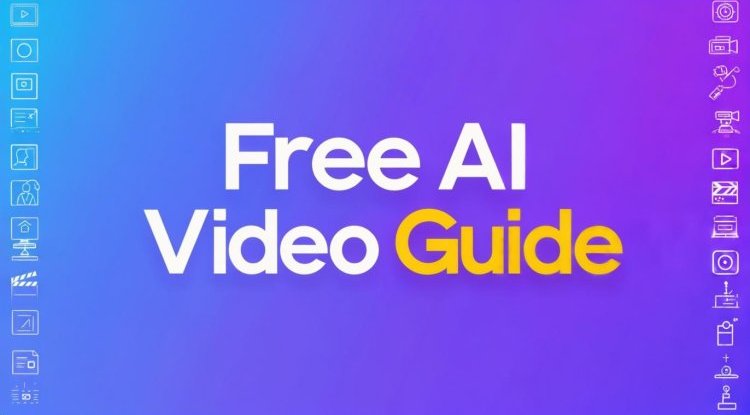Tips for Freely Surfing the Internet with a VPN
Digital technologies and the Internet have firmly entered our lives, taking an increasingly important place. Now it is difficult to imagine how we managed without all its capabilities. However, this is far from the free Internet that was once before.

Over time, a trend has emerged for its regulation by states, as well as other restrictions from various organizations and services. And every year there are more and more of them. A possible solution for users is to use a VPN when connecting to the Internet .
Virtual Private Network, abbreviated VPN, is translated as a virtual private network. Without going into technical details, it can be simply imagined as a special server on the Internet to which your computer, smartphone or other device creates a secure connection.
Nobody, including your provider, knows what information you exchange with this server, but the main thing is that it can act as an intermediate node when accessing the Internet. Thus, other servers on the Internet to which you connect see it, and not your device. It is due to this that using a VPN allows you to solve many problems. Here you can read the full guide to installing a dedicated IP VPN .
Situations in which VPN is useful
Due to various restrictions and prohibitions, free surfing on the Internet can be difficult. Therefore, we will consider various situations and give advice when it is useful to use a VPN.
Access to any site from any country
Although the technology was initially created to ensure security in corporate networks, over time it has found wide application to bypass various restrictions. Now this is probably one of the most common use cases.
In many countries around the world, there is a ban on access to certain sites and services by governments. Even if there are no restrictions in the country of residence, you can go on vacation abroad and suddenly find that the service you are used to is blocked in that country . Using a server from another country where these restrictions are not available allows you to access the blocked resource.
However, local legislation should be taken into account here, since such actions may be prohibited by law. For example, in the Russian Federation you can use a VPN, but it is prohibited to use it to access blocked sites or engage in illegal activities.
Regional blocking by websites
Sometimes the resource owners themselves impose restrictions. This could be a complete ban on access from a certain country, or different information or a list of available services depending on the user's region.
Netflix not working or YouTube videos unavailable from your country? Using a VPN will solve this problem. Also, substitution of geolocation data is useful in foreign online stores that do not deliver to your country or in situations where a multilingual site automatically redirects to a local version without the ability to manually select a region.
Bypassing restrictions from the provider
Providers can also impose their own restrictions, for example, depending on the tariff or other conditions. Access to file-sharing or streaming networks can be limited. VPN technology allows you to hide your activity from your Internet provider.
Prohibitions from employers
Access to certain resources from a work computer may be blocked by IT specialists. Connecting to a third-party virtual private network will allow you to hide your actions from your employer and gain access to these sites.
Ensuring anonymity and privacy on the Internet
Information about users has long been a valuable commodity that is bought and sold. For stores, advertising agencies, financial institutions, international corporations, your interests, income, place of work and residence, and other information are extremely important. Government agencies also do not mind knowing who is doing what online. That is why this information is collected in many ways, and surveillance on the Internet has acquired such a scale.
Using a VPN makes it much more difficult to identify you and collect data . As a result, there is less personalized advertising and presence in various databases.
Protection of transmitted data
Hackers, data interception and hacking are nothing new. At the same time, we constantly transmit important information. Therefore, in case of using an unreliable Internet connection with a high probability of data interception, it is recommended to use a VPN to protect your data.
This includes any public Wi-Fi hotspots in cafes, hotels, airports, etc. They are very vulnerable to intruders. It is also not a good idea to use office Wi-Fi or a work computer for personal purposes . In decent organizations with established network security, admins control network traffic. Why "flare" your card details, website passwords, and other piquant details of network surfing in front of them.
On the other hand, organizations also actively use virtual private network technology to protect information in the corporate environment. Employees usually connect to corporate servers from home via VPN, as does the interaction of various departments of the organization, geographically remote from each other.
Create your own virtual private network
If you have a home server and, say, a computer at your dacha, you can connect them using VPN technology for secure data exchange. You can also add other devices, such as smart home elements or video cameras. You can safely connect to this network from anywhere in the world.
As we can see, Virtual Private Network technology is in demand in the modern world, where data is a commodity, and legal and not so legal ways of collecting it are commonplace. These examples are not an exhaustive list of situations in which the use of VPN can be useful. There may be other examples where it will come in handy.
Share
What's Your Reaction?
 Like
0
Like
0
 Dislike
0
Dislike
0
 Love
0
Love
0
 Funny
0
Funny
0
 Angry
0
Angry
0
 Sad
0
Sad
0
 Wow
0
Wow
0





![Transfer/ Postings Senior Superintendent Police Hyderabad [Notifications]](https://pakweb.pro/uploads/images/202402/image_100x75_65d7bb0f85d5f.jpg)
![Amazing Text Animation Effect In CSS - [CODE]](https://pakweb.pro/uploads/images/202402/image_100x75_65d79dabc193a.jpg)




![Simple Weather App in HTML [CODE]](https://pakweb.pro/uploads/images/202509/img_w500_68d7a9fc4d3674-38765562.jpg)

